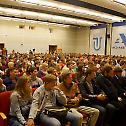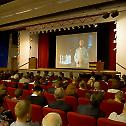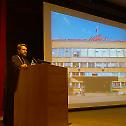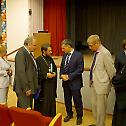Science
Religious Freedoms from the Orthodox Christian perspective
4. November 2013 - 14:22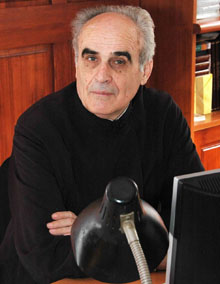 Protodeacon Radomir Rakic, Serbian Orthodox Church
Protodeacon Radomir Rakic, Serbian Orthodox Church
RELIGIOUS FREEDOMS FROM THE ORTHODOX CHRISTIAN PERSPECTIVE
It is not in the spirit of Eastern Christianity to formulate relations between people primarily in view of certain rights and obligations. The Orthodox prefer to speak about relations that are “appropriate and corresponding”. These relations originate from a common experience of Christians as members of Christ’s Kingdom. They express our common understanding of the Kingdom of God, and in life they are implemented by the growth of the person according to the image and likeness of God (Genesis 1:27) into the condition of deification (Greek Theosis) becoming more like God.
Homily on the feast of the Protection of the Mother of God
17. October 2013 - 13:50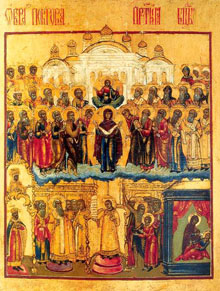 For those who celebrate the commemoration of the miraculous appearance of the Protecting Veil of the Mother of God, nothing could be more joyous than if we announced that this grace-filled Protection is spread even over us. But who could be the bearer of these glad tidings? Whose eye is capable of seeing the Most Holy Intercessor, “in the air, praying to Christ for us?” There are no obvious mystical seers like blessed Andrew and Epiphanius among us; and the hidden mysteries known only to the Lord will remain hidden unto the ages.
For those who celebrate the commemoration of the miraculous appearance of the Protecting Veil of the Mother of God, nothing could be more joyous than if we announced that this grace-filled Protection is spread even over us. But who could be the bearer of these glad tidings? Whose eye is capable of seeing the Most Holy Intercessor, “in the air, praying to Christ for us?” There are no obvious mystical seers like blessed Andrew and Epiphanius among us; and the hidden mysteries known only to the Lord will remain hidden unto the ages.
Nevertheless, we also, standing now in church, are not without a witness. In fact, it is the most reliable testimony that the Protection of the Most Blessed Virgin is spread also over us. Who is this witness? Not an earthly person, not even an angel, but our Protectress herself! With boldness and surety I say this on Her behalf; for isn’t Her holy and miracle working icon, which we see in this church, the constant, visible pledge of Her invisible protection?... We know from the history of miracle-working icons that in times of heaven’s wrath against human sins, these icons suddenly hid themselves and appeared in other places, or disappeared entirely. Therefore, as long as our Protectress does not abandon her place here, as long as she does not deprive her image of the grace-filled power of working miracles, as long as she receives our prayers and grants us timely help—we can, despite all our impurity, maintain a steadfast assurance that we are under her grace-filled Protection.
Bishop Fotije of Dalmatia: Homily on the Feast of the Elevation of the Holy Cross
28. September 2013 - 14:38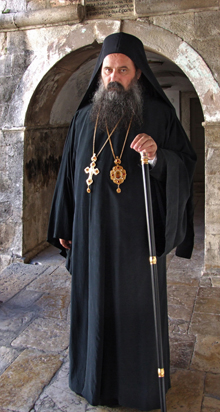 May today's Feast be joyous and this day be blessed of the Elevation of the Holy Cross, which is called among the people Holy Cross Day. We have gathered today in our holy monastery at the Divine Liturgy, to pray to God and that through Holy Communion we demonstrate that we are the Body of Christ, that we do not belong only on earth. We have shown today that we are a part of the mystical Body of Christ precisely through Holy Communion, but also through our entire podvig, our prayer and efforts. The crown of our life is today's approaching the Holy Chalice.
May today's Feast be joyous and this day be blessed of the Elevation of the Holy Cross, which is called among the people Holy Cross Day. We have gathered today in our holy monastery at the Divine Liturgy, to pray to God and that through Holy Communion we demonstrate that we are the Body of Christ, that we do not belong only on earth. We have shown today that we are a part of the mystical Body of Christ precisely through Holy Communion, but also through our entire podvig, our prayer and efforts. The crown of our life is today's approaching the Holy Chalice.
With Communion we show that we cannot live alone or only for ourselves, but we live with Christ, for Christ and in Christ. All of that is confirmed at the Divine Liturgy when the priest says: "With the fear of God, in faith and love, draw near!", we humbly approach to commune of the Life-giving Rib of Christ. That's why, brothers and sisters, we come together in Church for the great Feasts, for every Liturgy is the Resurrection; at every Liturgy we celebrate the Resurrection of Christ as the central Feast of the Church.
Philosophy of Upbringing in Writings of St. John Chrysostom
20. September 2013 - 12:43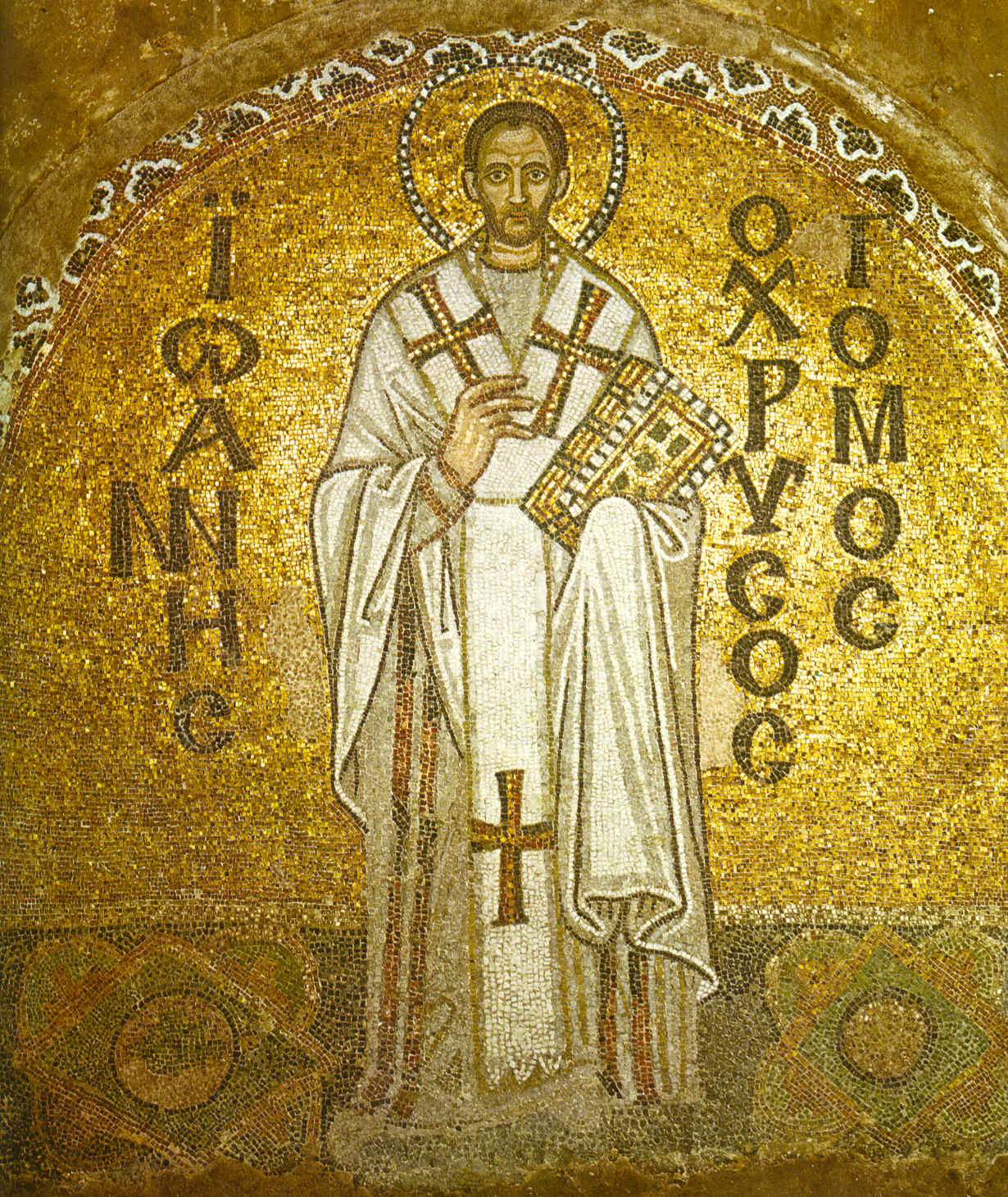 Bishop Dr. Jovan (Puric)
Bishop Dr. Jovan (Puric)
Christian pedagogy fully reached its historic maturity and comprehensiveness in the life and words of John Chrysostom. By the epoch of Chrysostom it had experienced turbulent centuries of interaction between Christian and Antique cultural influences, although the matter of civilization frameworks of Christian pedagogy was especially acute at the time of Chrysostom as well. With his comprehensive education, which included the knowledge of both Antique Hellenistic and ecclesial, Old and New Testament paideia, Chrysostom, following great Cappadocian Fathers before him and St. Maxim the Confessor after him, confirmed the readiness of Christian pedagogy to accept and integrate, in a transforming way, the most important achievements of Antique pedagogy and thereafter use them creatively.
The History of Christian Thought
5. September 2013 - 11:26On 3 September 2013, Metropolitan Hilarion, head of the Moscow Patriarchate’s Department for External Church Relations; chairman of the Synodal Biblical and Theological Commission and rector of the Ss Cyril and Methodius Theological Institute for Post-Graduate and Doctoral Studies delivered the first lecture in a special course “The History of Christian Thought” at the National Research Nuclear University MePhI.


